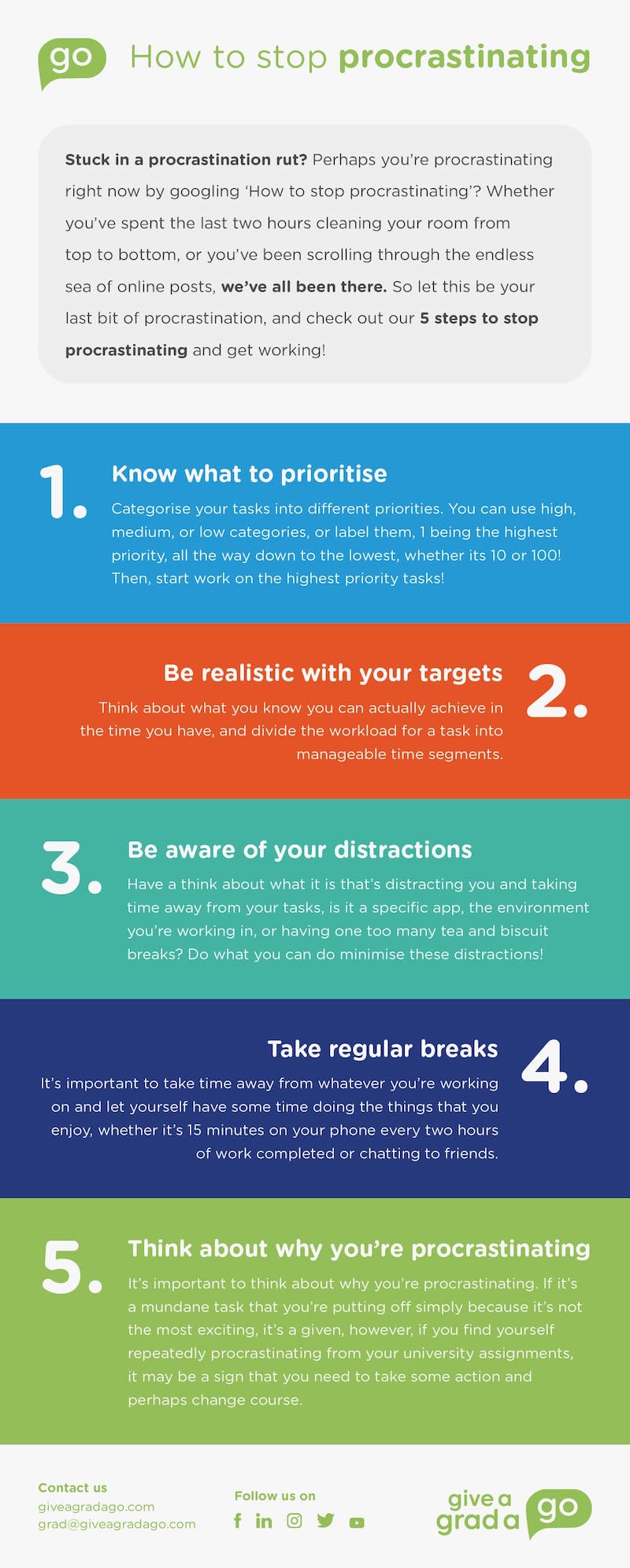“Why do I keep procrastinating?”
Procrastination – we’re all guilty of it!
Whether you’re scrolling through LinkedIn to delay tackling a tricky work email, or you’re doing anything under the sun to put off your graduate opportunities, procrastination habits affect us all.
Whatever form of procrastination is your vice, it’s important to understand that it is a common human behaviour that most of us do.
But, whilst it can feel like procrastination benefits stress levels in the short-term, there’s an inescapable feeling of procrastination guilt that can result from too much procrastination.
Further, the procrastination problem can become serious when delaying tasks starts to prevent you from achieving your career and life goals.
Don’t fret! Breaking the procrastination cycle is possible.
In this procrastination blog, we look closely at what procrastination means, what causes procrastination and tips on how to not procrastinate.






